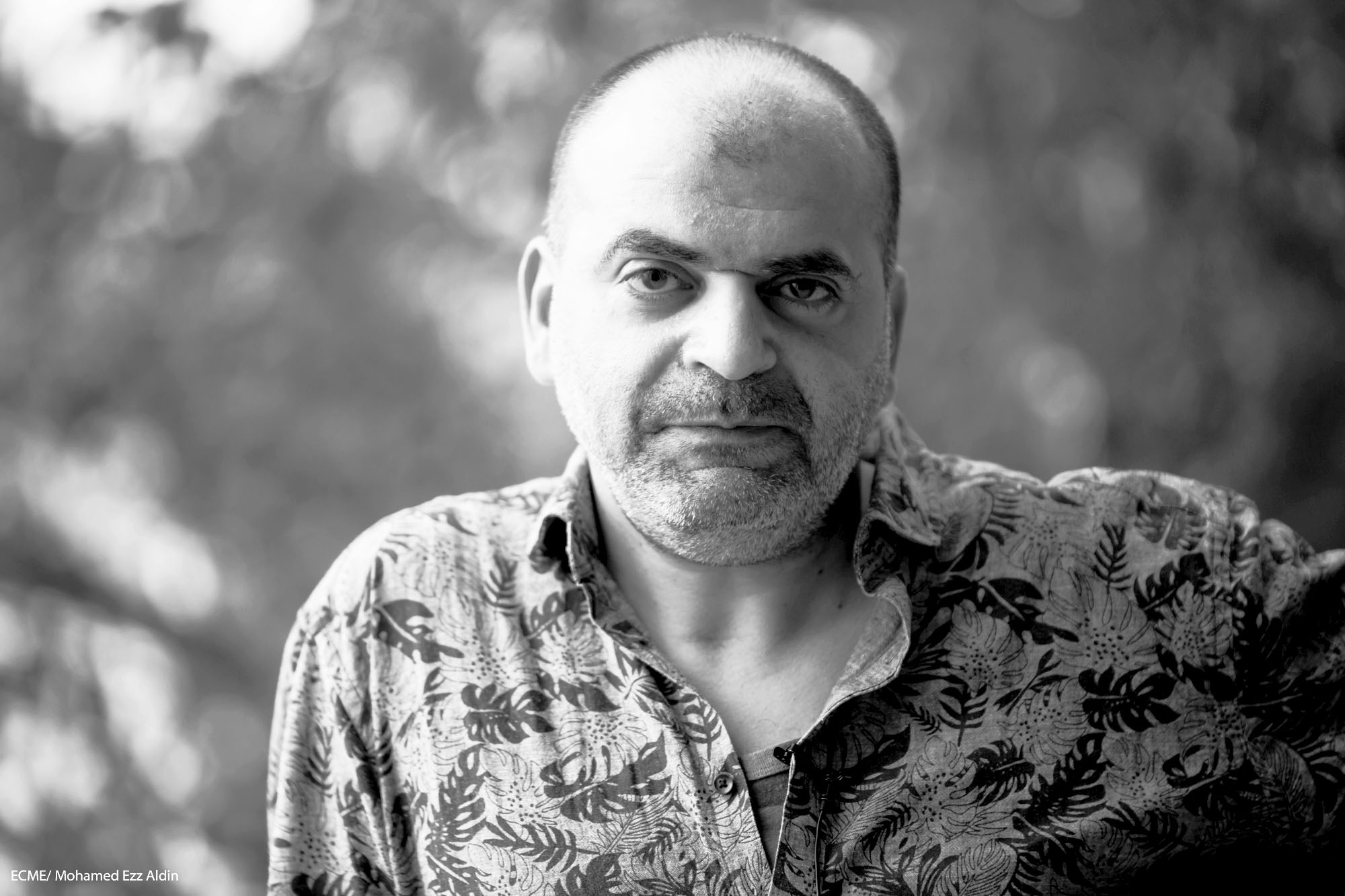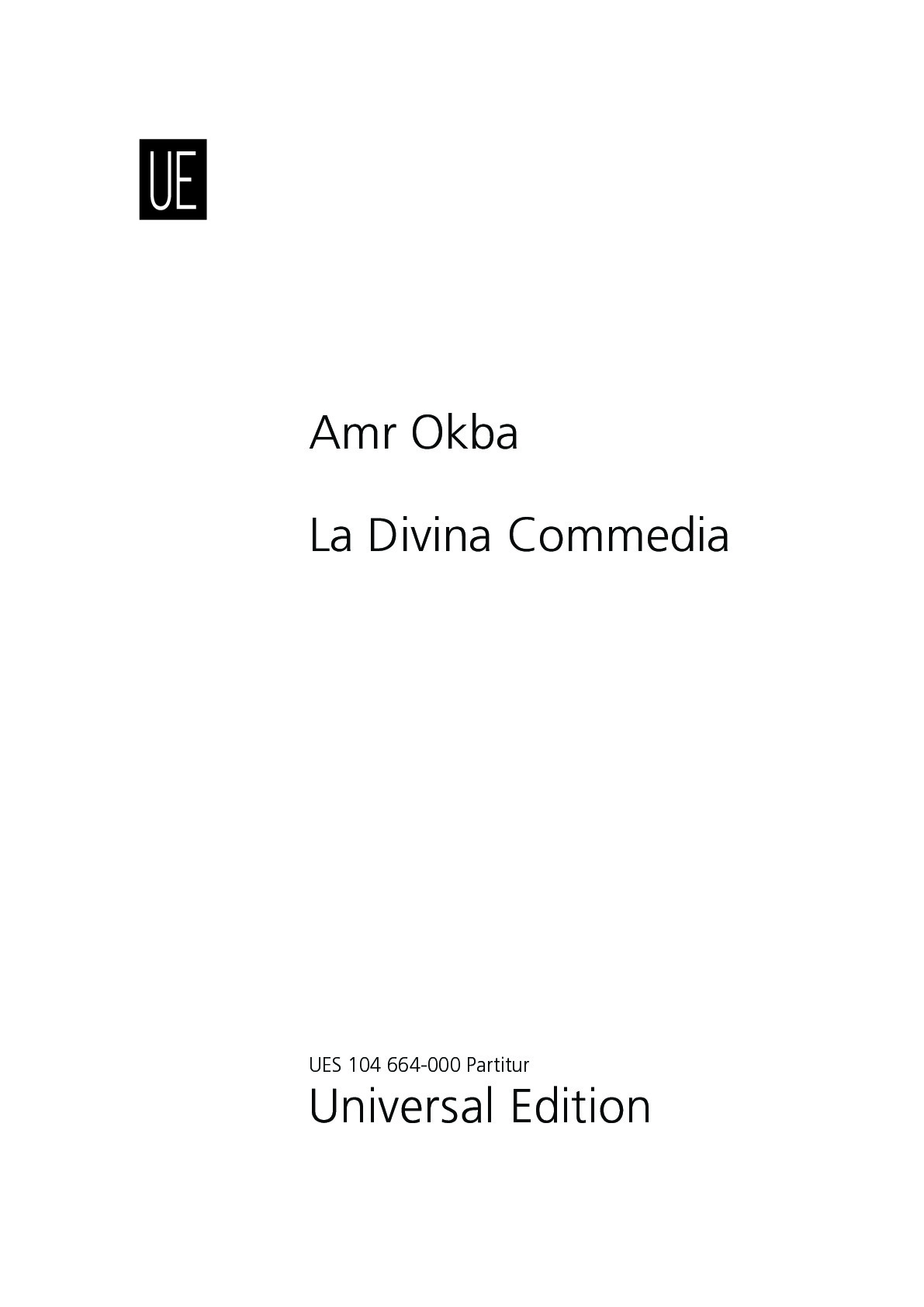

Amr Okba
La Divina Commedia
Short instrumentation: 2 2 2 2 - 1 1 1 0, perc(3), cel, hp, str
Duration: 30'
Instrumentation details:
flute (2 players)
oboe (2 players)
clarinet in Bb (2 players)
bassoon (2 players)
horn in F
trumpet in C
trombone
percussion
percussion
percussion
celesta
harp
violin I (16 players)
violin II (12 players)
viola (10 players)
violoncello (8 players)
double bass (4 players)
La Divina Commedia
Work introduction
The Divine Comedy is a lengthy Italian narrative poem written by Dante Alighieri between 1308 and 1320. It is widely regarded as one of the most important works in Italian literature and one of the greatest achievements in world literature. The poem chronicles Dante's journey through Hell, Purgatory, and Paradise (Heaven).
In Hell, Dante finds himself lost in a dark forest, unable to escape and uncertain of how to attain salvation. Aware that he is destroying himself and descending into a place of despair, he is eventually rescued by Virgil, who becomes his guide on a profound journey that leads to Paradise. In Purgatory, Dante and Virgil ascend from the dark depths to the Mountain of Purgatory, which comprises seven terraces representing the seven deadly sins. It is a mountain of peace and tranquility. At the conclusion of Purgatory, Dante encounters Beatrice, who serves as his guide to Paradise.

